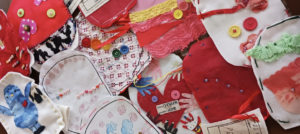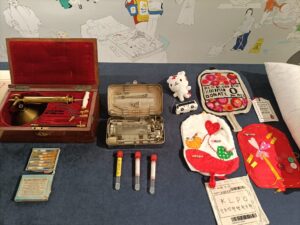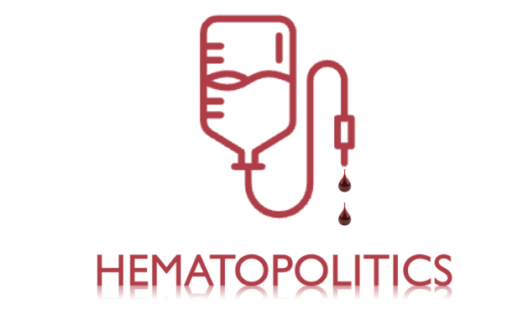Welcome to Hematopolitics!
Hematopolitics is a research project at the University of Leeds focusing on blood symbolism, social relationships, and boundary-making in blood banking.
- What does your blood mean to you and your body?
- What feelings and values do we associate with giving and receiving blood?
- How does the exchange of blood across our bodies shape our understandings of connections with others?
Hematopolitics has hosted exciting international opportunities, offers a dynamic programme of events, and provides scholars and the public alike with the opportunity to learn about the rich heritage of blood donation across the globe.

헤마토폴리틱스에 오신 것을 환영합니다!
헤마토폴리틱스는 리즈대학교에서 진행되는 연구 프로젝트로, 헌혈을 둘러싼 혈액의 상징성, 사회적 관계 및 경계 형성을 탐구합니다.
- 여러분의 혈액은 여러분에게 어떤 의미를 지니고 있습니까?
- 혈액을 주고받는다는 것에 대해 우리는 어떤 감정을 느끼며 어떤 가치를 부여하고 있을까요?
- 혈액이 개개인의 몸을 넘나들며 교환되는 과정은 타인과의 연결을 어떻게 재구성할까요?
헤마토폴리틱스는 국제적인 학술 교류와 더불어 다채로운 프로그램을 통해 학계와 일반 대중이 전 세계의 풍부한 헌혈 문화를 이해할 수 있는 기회를 제공합니다.

ヘマトポリティクスへようこそ。
ヘマトポリティクスは、リーズ大学で行われている研究プロジェクトで、献血に関する血液の象徴性や社会的関係、境界形成について探究しています。
- あなたの血液は、あなたにとってどのような意味を持つのでしょうか?
- 血液をやり取りすることに対して、私たちはどのような感情を抱き、どのような価値を見出しているのでしょうか?
- 血液が個々の身体を超えて交換される過程は、他者とのつながりをどのように再構築するのでしょうか?
ヘマトポリティクスは、国際的な学術交流に加え、多彩なプログラムを通じて、学界や一般の方々に世界各地の豊かな献血文化を学ぶ機会を提供しています。



